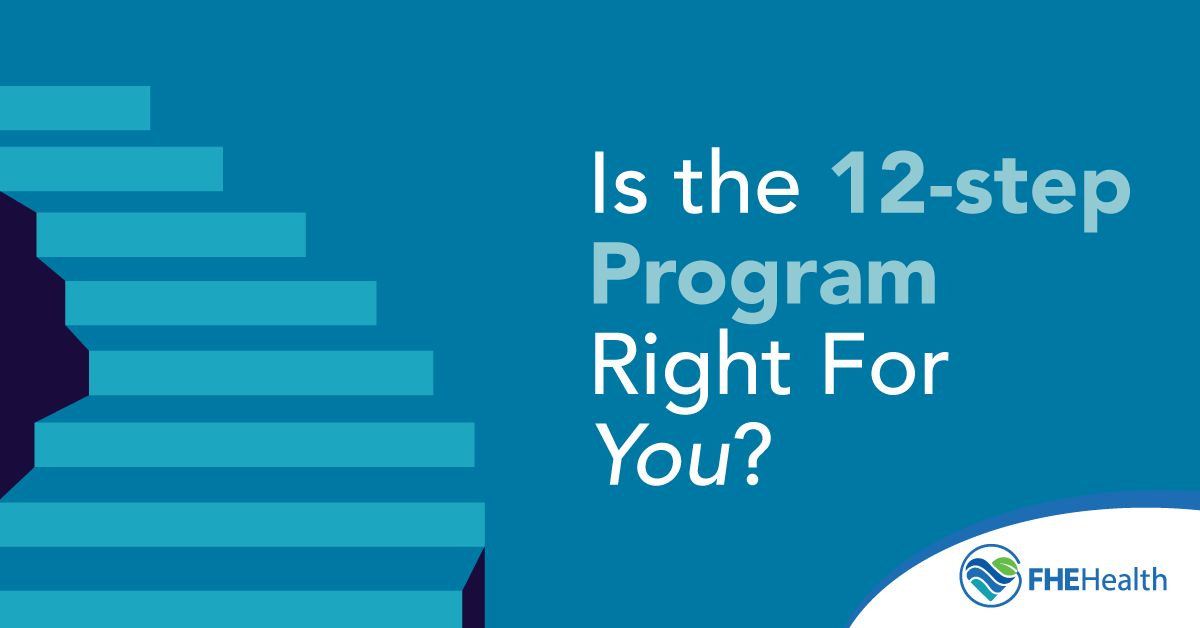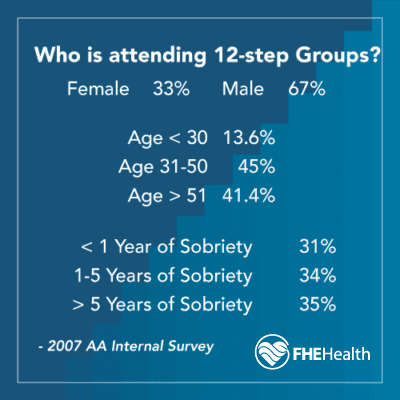
The 12-Step Program was originally promoted by Alcoholics Anonymous and is one of the most common forms of treatment at recovery centers. While it has worked for many people, some find issues with its construction and religious element. Many variations are available in addition to other completely different addiction treatment options to help addicts achieve sobriety.
What is the 12-Step Program?
 In 1938, the founder of Alcoholics Anonymous Bill Wilson began outlining the concept for what would become the 12-Step Program. He based the model on his experiences, having seen the positive impacts of people dealing with alcoholism sharing their backgrounds with each other. Wilson wrote his findings in a guidebook for people not physically capable of attending AA meetings called the Big Book. Since its inception, the program has been adopted as a standard for many self-help initiatives and peer support groups. Due to the success AA has enjoyed with 12 Steps, there have been several branches that have broken off for other addictions including Gambler’s Anonymous (GA), Narcotics Anonymous (NA), and Heroin Anonymous (HA).
In 1938, the founder of Alcoholics Anonymous Bill Wilson began outlining the concept for what would become the 12-Step Program. He based the model on his experiences, having seen the positive impacts of people dealing with alcoholism sharing their backgrounds with each other. Wilson wrote his findings in a guidebook for people not physically capable of attending AA meetings called the Big Book. Since its inception, the program has been adopted as a standard for many self-help initiatives and peer support groups. Due to the success AA has enjoyed with 12 Steps, there have been several branches that have broken off for other addictions including Gambler’s Anonymous (GA), Narcotics Anonymous (NA), and Heroin Anonymous (HA).
As listed by Alcoholics Anonymous and the Big Book, the twelve steps are as follows:
- Admit you are powerlessness over the addiction
- Believe there is a higher power that can help
- Decide to relinquish control to that higher power
- Take a personal inventory of oneself
- Admit to oneself, another individual, and higher power what wrongdoing has been done
- Be ready for the higher power to come in and correct any of your shortcomings
- Ask the higher power to get rid of those shortcomings
- Make a list of wrongdoings and be willing to make amends to yourself and others
- Contact those who have been hurt, unless that would further harm them
- Continue to record a personal inventory and admit when you make other mistakes
- Use prayer and meditation to seek enlightenment and connection with a higher power
- Carry forth the message of the 12-Step Program to people who need help
There are several benefits to the 12-Step Program. It gives addicts the ability to admit their addiction and decide to get help from an external source. This makes them more aware and observant of their behaviors, as they feel a greater capability to restrict their habits. The steps are designed to teach participants self-restraint and build up their self-esteem so they can feel positive and confident without the need to use substances. As it is meant to be conducted in group settings, this treatment option is particularly good at helping addicts develop empathy and compassion for the other people in their support meetings who are struggling with addiction.
Is This Treatment Option Right For You?

In order for 12-Steps to work, there has to be a sizable group for there to be enough support. Therefore, while it is easy to find groups for such addictions as cocaine, heroin, and alcohol; amongst others, as well as eating disorders, niche addictions might not attract such numbers. If someone has a rare addiction, it will be difficult for them to find a center to share their stories. Also, not everyone will feel comfortable speaking to so many strangers at one time.
In addition, the program is entirely dependent on participation from members. This is a risky treatment option because all it takes is for one person to relapse or cause trouble to potentially trigger other attendees to begin reusing. Each person is in a sense responsible for the success of others, which can be a lot of pressure to put on some people trying to kick their addiction. Being this fragile in its construction, 12-Steps clearly has its limitations.
The 12-Steps model asks that all participants completely abstain from their addiction. This cold turkey approach leaves recovering addicts to experience the full blows of withdrawal, which can lead to relapse as that process if often painful and uncomfortable. Another drawback with the program is the lack of professional help. The vast majority of people attending meetings are normal civilians with addictions. Usually, there is a mediator to lead the conversation within the group, but no therapist, counselor, or medical specialist is on site always to assist. If you are someone looking for an expert to guide you through recovery, this is not the treatment option for you.
One of the main aspects of the program that people battle with is its basis in Christianity. Those who are not Christian can modify the steps to cater to their religion or spiritual tradition to make the process more personal to them. However, some people in recovery will not want to take out this extra task and might encounter people in the program who do not want any of the steps to be modified. There is the treatment option to make the model more secular so that atheists and/or agnostic people can feel like they are not being forced to ascribe to a religion they do not follow.
Other Treatment Options
Some people take issue with the first step of the program, as they do not want to view themselves as powerless over their addiction. Others would like to make use of the various medications available to help recovery, a method discouraged from the abstinence stance of 12-Steps. There are several other treatment options that give addicts seeking help more flexibility rather than following a rigid set of rules in addition to far more expansive access to medical professionals.
FHE Health caters our services to patients so they have the best chance of treatment. We know that everyone experiences withdrawal and cravings differently so there is no need to have a one size fits all approach. One of the techniques we provide is to supply medications that help rehabilitation since they have been proven to be particularly successful with heroin addiction. Buprenorphine is an opiate that releases the same neurotransmitters as heroin, but much less. Methadone is a slightly stronger version of buprenorphine. Naltrexone blocks the receptors that opioids bind to, reducing cravings and preventing the effects of heroin should relapse occur.
Most addiction specialists maintain that research-based, residential programs are the most effective since they are personalized. FHE Health has a residential treatment program where patients are taught coping strategies after having detoxified their body of harmful toxins. Here they are able to return to their normal selves in a safe and regulated environment free of triggers. Our centers provide a number of distractions from life’s daily struggles to allow residents to fully focus on themselves. There is also an outpatient program constructed to help patients transition back into the real world. It aids clients in navigating life without the influence of substances. They have the ability to attend school in the daytime or work at their jobs while also attending therapy in the afternoons before coming back to our provided sober living quarters at night.
Contact FHE Health
If you or someone you know wants to find out more about the 12-Step Program or other treatment options, contact us for assistance on the best road to recovery for your personal situation. We offer a wide array of methods to combat addiction. Our team of highly trained and compassionate medical specialists, counselors, and experts are standing by to help you.






